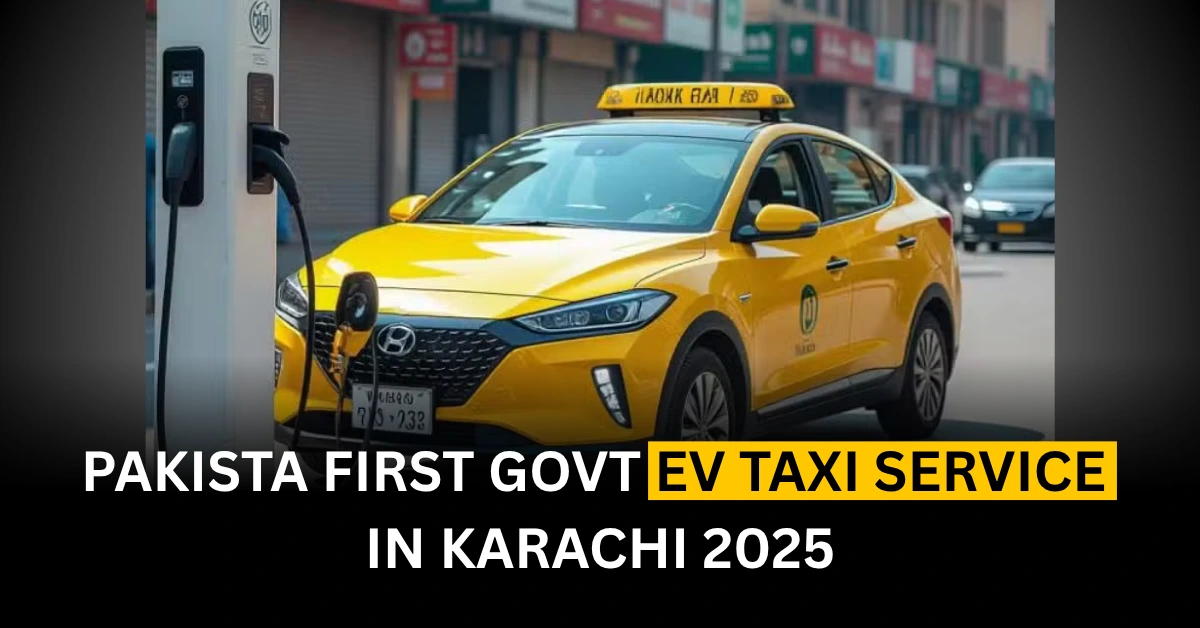Pakistan is preparing to introduce its first government-run EV taxi service, with the Sindh government confirming a launch in Karachi by December 2025. The initiative is designed to modernize transport, reduce emissions, and improve inclusivity by reserving part of the fleet for women passengers. This move also reflects the government’s broader ambition to reduce dependence on imported fuel and adopt eco-friendly practices in urban mobility.
Oversight and Management
The EV taxi service will be managed under the supervision of Senior Minister Sharjeel Inam Memon, who also oversees the information and transport departments. A phased rollout is expected, starting with a limited fleet in Karachi before possible expansion to other major cities. The decision to allocate a portion of vehicles exclusively for women commuters is part of a wider effort to ensure safer travel, building on initiatives such as the Pink Bus Service and Pink Scooty Scheme.
Also Read
Electric Bike Scheme for women Launched in Balochistan
Key Objectives
The project focuses on delivering multiple benefits through the EV taxi service:
- Reducing Carbon Emissions: By replacing conventional fuel-based taxis, the government aims to significantly cut down harmful pollutants in urban areas, contributing to better air quality.
- Modernizing Public Transport: The EV taxi service introduces an advanced, eco-friendly alternative that can compete with private ride-hailing services and improve Karachi’s outdated transport network.
- Enhancing Safety and Inclusivity: Reserved vehicles for women will provide a sense of security, encouraging greater participation of women in public and workplace activities.
- Economic Efficiency: Transitioning to EVs will lower operational costs over time, as electric vehicles generally have reduced fuel and maintenance expenses compared to conventional taxis.
Challenges and Considerations
The success of the EV taxi service depends on addressing several important factors:
- Charging Infrastructure: Adequate charging stations, including fast chargers, must be established across Karachi. Without this, the service may face downtime and reduced efficiency.
- Fleet and Maintenance: Clear policies are needed on the number of EVs to be imported or locally assembled, their technical specifications, and long-term upkeep—especially regarding battery replacement costs.
- Affordability: Competitive fares will be vital to attract riders and sustain the EV taxi service. Pricing must remain accessible for daily commuters while covering operational expenses.
- Policy Support: Incentives such as tax relief on EV imports, reduced electricity tariffs for charging, and subsidies could ensure long-term scalability.
- Driver Training: Operators will require detailed training in EV handling, charging processes, safety measures, and customer care, with an added focus on gender sensitivity for women passengers.
Join our WhatsApp channel. For more related news,
Public Reception and Future Impact
The government anticipates strong public interest in the EV taxi service, especially among commuters seeking safe and affordable travel options. If successful, this initiative could serve as a model for future EV-based transport systems in Pakistan. It may also attract private-sector investment in charging infrastructure and EV manufacturing, creating new economic opportunities. Furthermore, the project demonstrates Pakistan’s alignment with global efforts to shift toward low-carbon, sustainable urban transport.
Conclusion
Scheduled to debut in Karachi by the end of 2025, Pakistan’s first state-run EV taxi service has the potential to transform the country’s transport landscape. By combining sustainability, inclusivity, and affordability, the scheme not only addresses pressing urban challenges but also sets the stage for broader adoption of electric mobility nationwide. If executed successfully, it could become a turning point in Pakistan’s journey toward a greener and more efficient public transport system.
‘




Join The Discussion